NIL
Democrats criticize latest effort by Congress to regulate college sports as setback for athletes
WASHINGTON — The latest effort by Congress to regulate college sports generated predictable partisan outrage on Thursday, with Democrats saying Republican-led draft legislation would claw back freedoms won by athletes through years of litigation against the NCAA. Three House committees are considering legislation that would create a national standard for name, image and likeness payments […]
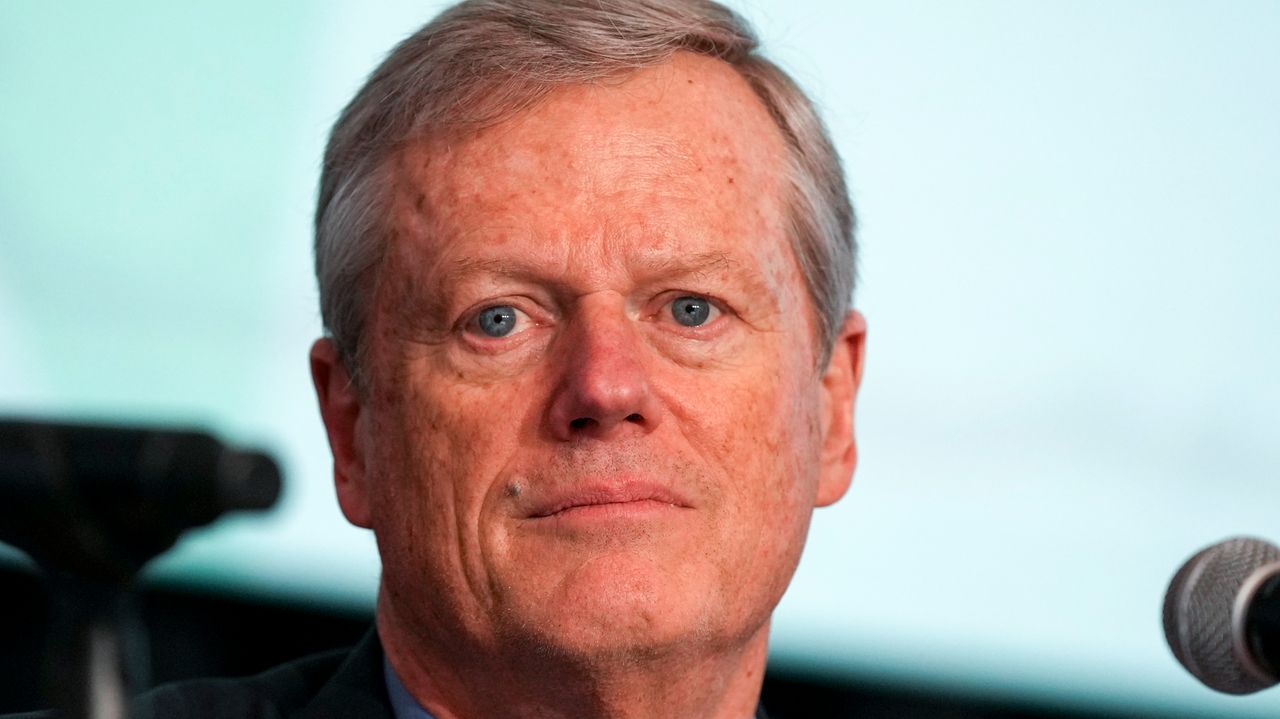
WASHINGTON — The latest effort by Congress to regulate college sports generated predictable partisan outrage on Thursday, with Democrats saying Republican-led draft legislation would claw back freedoms won by athletes through years of litigation against the NCAA.
Three House committees are considering legislation that would create a national standard for name, image and likeness payments to athletes and protect the NCAA against future lawsuits. Last week, a federal judge approved a $2.8 billion settlement that will lead to schools paying athletes directly, and NCAA President Charlie Baker said now that his organization is implementing those major changes, Congress needs to step in and stabilize college sports.
Baker said he supports the draft legislation that was the subject of Thursday’s hearing by a House Energy and Commerce subcommittee, but there was little indication that any bill advanced by the House would generate enough Democratic support to surpass the 60-vote threshold in the Senate.
“I’m deeply disappointed for the second year in a row, Republicans on this committee are advancing a partisan college sports bill that protects the power brokers of college athletics at the expense of the athletes themselves,” said Rep. Lori Trahan, D-Mass.
Trahan noted that if the NCAA or conferences establish unfair rules, athletes can challenge them in court, with the settlement of the House v. NCAA antitrust case the latest example of athletes winning rights that they had been denied historically.
“This bill rewrites that process to guarantee the people in power always win, and the athletes who fuel this multibillion-dollar industry always lose,” said Trahan, who played volleyball at Georgetown.
The NCAA argues that it needs a limited antitrust exemption in order to set its own rules and preserve a college sports system that provides billions of dollars in scholarships and helps train future U.S. Olympians. Several athletes are suing the NCAA over its rule that athletes are only eligible to play four seasons in a five-year period, and on Tuesday, a group of female athletes filed an appeal of the House settlement, saying it discriminated against women in violation of federal law.

College soccer player Lexi Drumm leaves federal court during a hearing for a landmark $2.8 billion settlement impacting NCAA college athletics on Monday, April 7, 2025, in Oakland, Calif. Credit: AP/Noah Berger
On the Senate side, a bipartisan group including Republican Ted Cruz of Texas has been negotiating a college sports reform bill for months, but those talks are moving more slowly than Cruz had hoped at the beginning of this Congress.
The draft bill in the House would create a national standard for NIL, overriding the state laws that critics say have led to a chaotic recruiting environment. That, too, was criticized by Democrats and by their key witness at the hearing, Ramogi Huma, executive director of the National College Players Association.
Huma argued that the NCAA wants to get rid of booster-funded NIL collectives that another witness, Southeastern Conference associate commissioner William King, characterized as “fake NIL” or “pay for play.”
Instead, Huma said the collectives are examples of the free market at work, noting that before players won NIL rights through a court case, boosters could only donate to athletic departments.
Tom McMillen, a former Democratic congressman who played in the NBA after an All-America basketball career at Maryland, took a dim view of the bill’s prospects.
“I think they’re trying to come up with something and pull in some Democrats. I just don’t know if that’s going to succeed or not,” said McMillen, who for several years led an association of Division I athletic directors. “There’s a real philosophical divide, so that’s the hard part. It’s hard to bridge. And there’s a zillion other issues.”
The subcommittee chairman, Rep. Gus Bilirakis, R-Fla., said the draft legislation already had some bipartisan support and he was open to changes that would get more Democrats on board.
“I will consider some of the suggestions, the legitimate suggestions that were made,” Bilirakis said, “and I will be happy to talk to lawmakers that truly want to get a big bill across the finish line.”
NIL
Deion Sanders doesn’t hold back on why certain college football teams keep winning
Colorado head coach Deion Sanders is pushing for a cap within the Name, Image and Likeness market as college football programs fight to stay competitive in the aftermath of the House settlement. While schools can share up to $20.5 million directly to student athletes this year, the revenue share cap doesn’t apply to third-party NIL […]

Colorado head coach Deion Sanders is pushing for a cap within the Name, Image and Likeness market as college football programs fight to stay competitive in the aftermath of the House settlement.
While schools can share up to $20.5 million directly to student athletes this year, the revenue share cap doesn’t apply to third-party NIL deals. Programs can work with outside partners to give athletes even more opportunities.
Sanders helped turn Colorado around in his second season at the helm, finishing at 9-4 after recording just four wins in 2023.
Despite the promising trajectory of the program, though, Sanders is wary about competing against programs with more backing from an NIL perspective.
“I wish there was a cap,” Sanders said Wednesday at Big 12 Media Days. “You know, like, the top-of-the-line player makes this, and if you’re not that type of guy, you know you’re not going to make that. That’s what the NFL does. So, the problem is you got a guy that’s not that darn good, but he could go to another school and give him a half a million dollars. And you can’t compete with that.”
Larger programs have a leg up in recruiting and maintaining top-tier talent. The last three national championship winners – Georgia, Michigan and Ohio State – were among the country’s biggest NIL spenders.
Ohio State reportedly spent around $20 million to field its national championship roster last season.
“All you have to do is look at the playoffs and see what those teams spent, and you’ll understand darn well why they’re in the playoffs,” Sanders said. “It’s kind of hard to compete with somebody who’s giving 25-30 million dollars to a darn freshman class.”
“It’s crazy,” Sanders continued. “We’re not complaining, because all these coaches up here can coach their butts off… But what’s going on right now don’t make sense. We want to say stuff, but we’re trying to be professional… But the team that pays them more, pays the most, is going to be there in the end.”
All third-party deals totaling over $600, in light of the House settlement, are subject to the NIL Go clearinghouse. That process could begin to reign in unsustainable deals and provide more of an equal playing field.
However, the effectiveness is, and will continue to be, under question, as the current landscape was just instituted on July 1.
NIL
‘Don’t Make Sense’ — Colorado HC Deion Sanders Provides Alternate NIL Idea Amid Inequality in College Football
Deion Sanders stood at the podium during Big 12 Media Days with a message that addressed college football’s biggest problem. The Colorado head coach wasn’t mincing words about NIL deals and the chaos they’ve created. His solution? Stop pretending the current system works and start copying what does. Dive into Try out PFSN’s FREE college […]

Deion Sanders stood at the podium during Big 12 Media Days with a message that addressed college football’s biggest problem.
The Colorado head coach wasn’t mincing words about NIL deals and the chaos they’ve created. His solution? Stop pretending the current system works and start copying what does.

Why Does Colorado HC Deion Sanders Think NIL Creates an Unfair Playing Field?
The college football landscape has shifted rapidly, largely due to the rise of NIL deals. While these opportunities benefit student-athletes, they have also deepened the divide between powerhouse programs and those with limited funding.
Wealthier schools now leverage major donor support and lucrative endorsements to secure elite talent, leaving smaller programs struggling to compete. As these major developments continue to unfold, Sanders has closely monitored them, expressing concern about the NCAA’s uncertain role in this evolving system.
Colorado head coach Deion Sanders has reemerged on the college football stage, and with him comes a renewed critique of the current state of NIL deals. Speaking at Big 12 Media Days, Sanders didn’t hold back while addressing the competitive disparity NIL has introduced into the sport.
He pointed directly at the imbalance in spending among programs and its visible impact on postseason appearances. “All you gotta do is look at the [CFP] and see what those teams spent, and you’ll understand darn well why they’re in the playoffs,” Sanders said.
His frustration was rooted not in the principle of player compensation, which he supports, but in the lack of structure guiding it. Sanders voiced concern over how programs now land recruits based primarily on NIL money rather than coaching or development.
“All you gotta do is look at the [CFP] and see what those teams spent, and you’ll understand darn well why they’re in the playoffs.”
Deion Sanders on NIL and the current state of college football. pic.twitter.com/y6A5C3dWUP
— ESPN (@espn) July 9, 2025
“You got a guy that’s not that darn good, but he could go to another school and they give him a half a million dollars and you can’t compete with that,” he said. “We’re not complaining because all these coaches up here could coach their butts off… but what’s going on right now don’t make sense.”
Sanders noted that schools with the largest donor bases are stockpiling talent, while others simply can’t keep pace financially.
“And you’re talking about equality, not equality, like equal, I guess, equality. And all you have to do is look at the playoffs and see what those teams spent, and you understand darn they’re wider in the playoffs.”
What Solution Does Sanders Propose for College Football’s NIL Problem?
Sanders has long advocated for NIL regulations and, earlier in April, proposed a clear solution: a salary cap mirroring the NFL’s structure.
“There should be some kind of cap,” he said in an interview with USA Today‘s Jarrett Bell. “Our game should emulate the NFL game in every aspect. Rules. Regulations. Whatever the NFL rules, the college rules should be the same.”
Sanders believes a structured cap would allow fairness to prevail across programs of varying size and resources. This approach would level the playing field by preventing the wealthiest programs from simply outspending their competition for top talent.
RELATED: Colorado HC Deion Sanders Takes Cheeky Jab at Texas Tech HC Joey McGuire’s Transfer Portal Activity While Praising Red Raiders
However, the current trajectory suggests his concerns are only growing. As part of a recently approved antitrust settlement in the House v. NCAA case, schools will soon be permitted to share up to $20.5 million annually with athletes. However, for Sanders, that measure falls short of addressing the core issue.
“It’s kind of hard to compete with somebody who’s given $25, $30 million to a darn freshman class,” he said, pointing out the growing gap between schools flush with cash and those without such advantages.
Sanders’ message was direct and uncompromising. Without firm guidelines, the sport risks becoming a predictable cycle dominated by the wealthiest programs. His NFL-style salary cap proposal represents a fundamental shift toward structured competition rather than the current free-for-all approach that has transformed college recruiting into a bidding war.
NIL
NIL Go
In addition to the $2.8 billion, 10-year settlement and a $20.5 million annual revenue-sharing pool for Division I schools, the House v. NCAA lawsuit settlement is also transforming college sports by the creation of the College Sports Commission online portal, NIL Go. Developed and to be administered in partnership with Deloitte, NIL Go was established […]



In addition to the $2.8 billion, 10-year settlement and a $20.5 million annual revenue-sharing pool for Division I schools, the House v. NCAA lawsuit settlement is also transforming college sports by the creation of the College Sports Commission online portal, NIL Go. Developed and to be administered in partnership with Deloitte, NIL Go was established to oversee all third-party NIL (Name, Image, Likeness) deals exceeding $600. It evaluates whether each such contract falls within a “reasonable range of compensation,” a subjective criterion that many believe could lead to future legal disputes.
One glaring issue is that Deloitte officials have already stated that a significant portion of past NIL collective deals would have been rejected under their new formula, with 70% potentially being denied. While most public company NIL deals are valued under $10,000, some athletes proactively secured six-figure deals with Power Four programs before the July 1 deadline, in anticipation of the revenue cap.
The NIL Go system will notify athletes if their deals are cleared, rejected, or flagged for further review. Athletes will then have the option to revise, cancel, or appeal. However, unlike professional leagues, colleges sports lack a collective bargaining agreement, raising questions about the legitimacy of this arbitration process. The new system is sure to face challenges, including potential legal battles if deals are denied, and there are already indications that some parties intend on challenging the clearinghouse’s authority.
Another concern is that many athletes, especially those not on campus during the summer, are largely unaware of the new NIL Go platform and its processes. While some expect clear standards for athlete compensation to emerge once the new revenue-sharing model is fully understood, others worry that some athletes may simply fail to submit NIL deals because they are unaware of the new requirements.
Given the rapidly evolving landscape of NCAA regulations, it’s important for student-athletes and those advising them to understand the complexities of NIL agreements. Consulting with legal professionals experienced in athletic or endorsement contracts can help ensure that deals are both compliant and in the athlete’s best interest.
[View source.]
NIL
Did BYU tamper with Utah's Smith Snowden? Ute DB says no.
Frisco, Texas • Smith Snowden saw the blowback his former teammate Keanu Tanuvasa took for bolting from Salt Lake to Provo this offseason. As fans struggled to comprehend how one of Utah’s best players could make the move to the school’s biggest rival, Snowden understood the hurt. But he also couldn’t help feeling compassion for […]
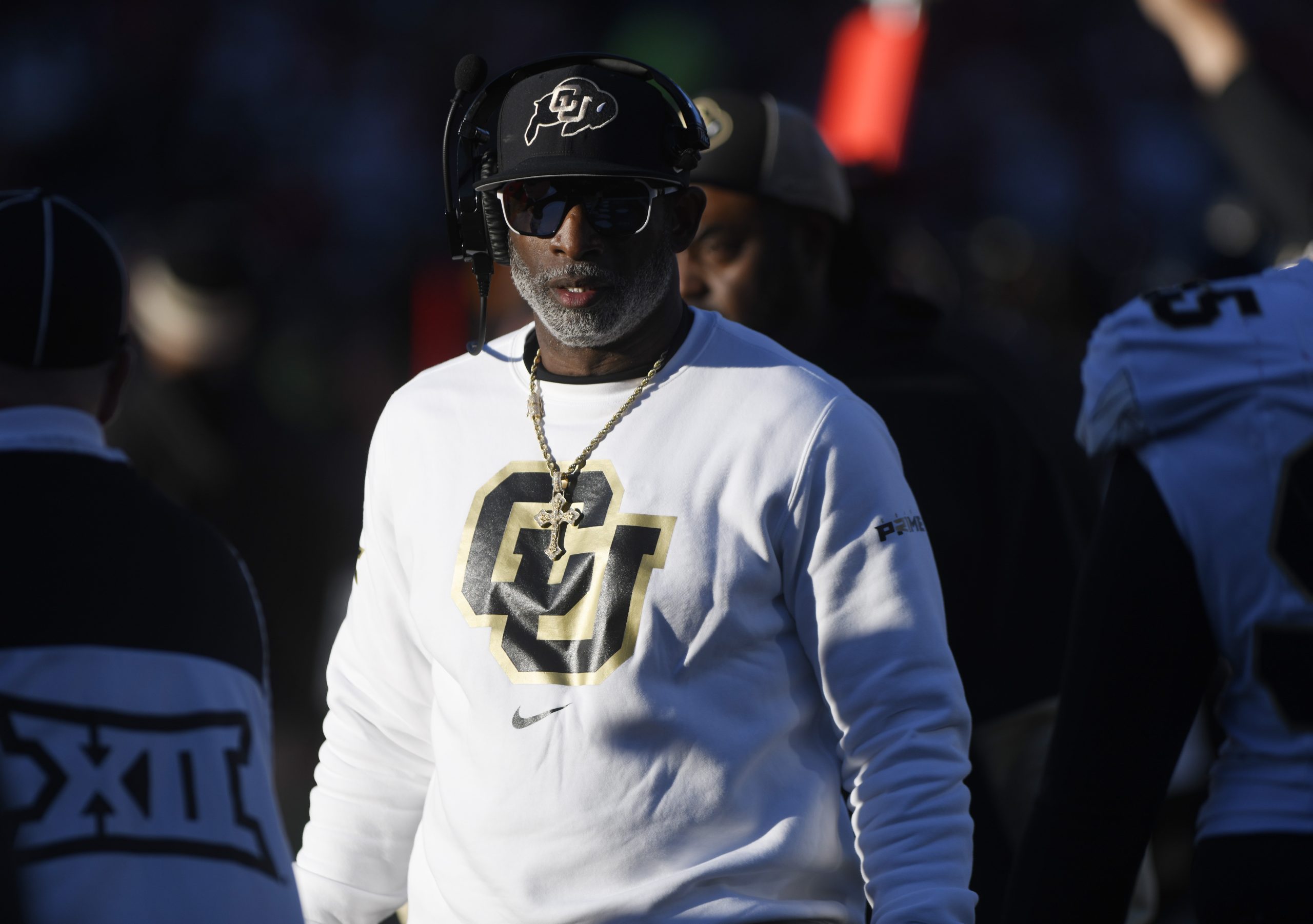
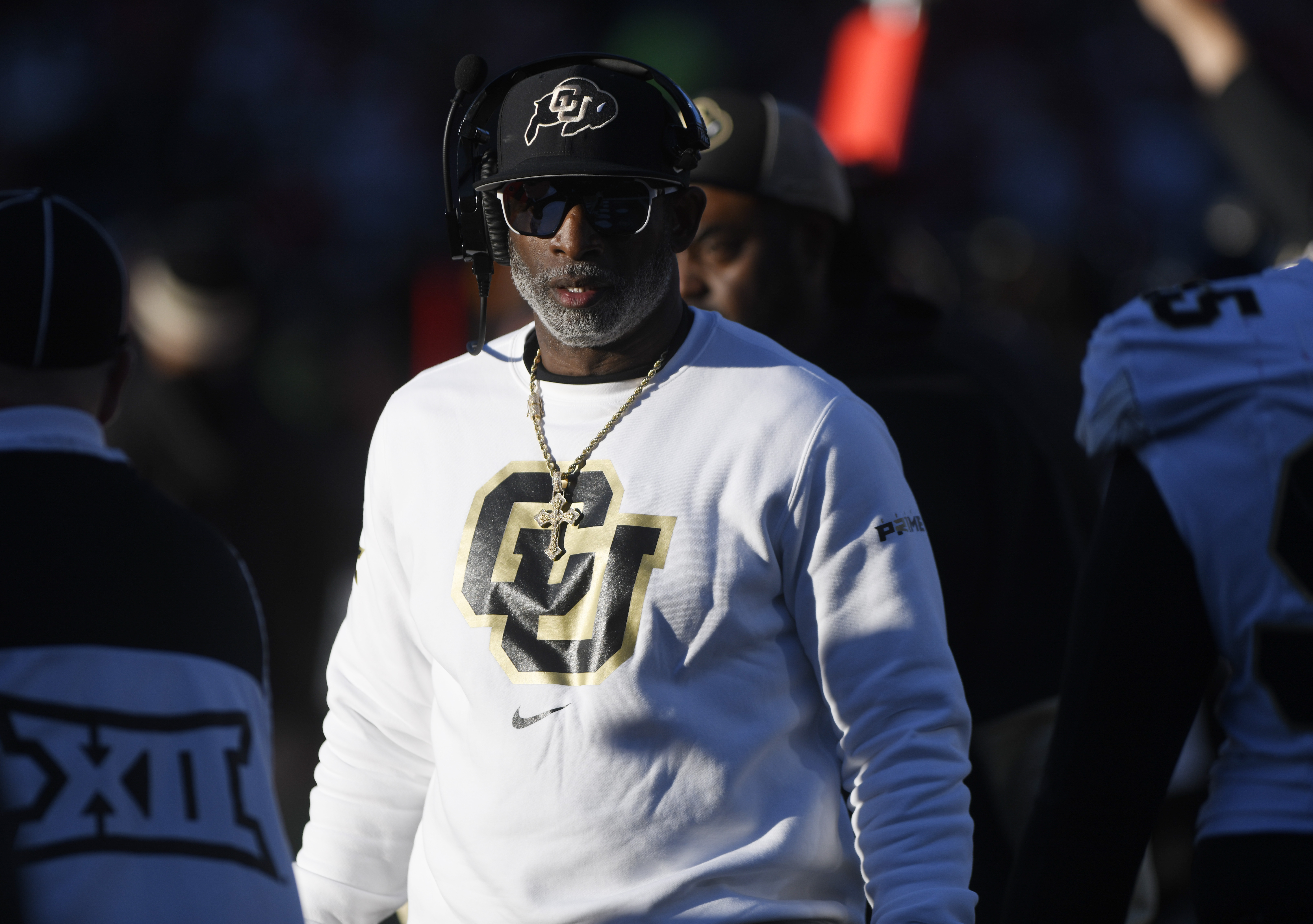
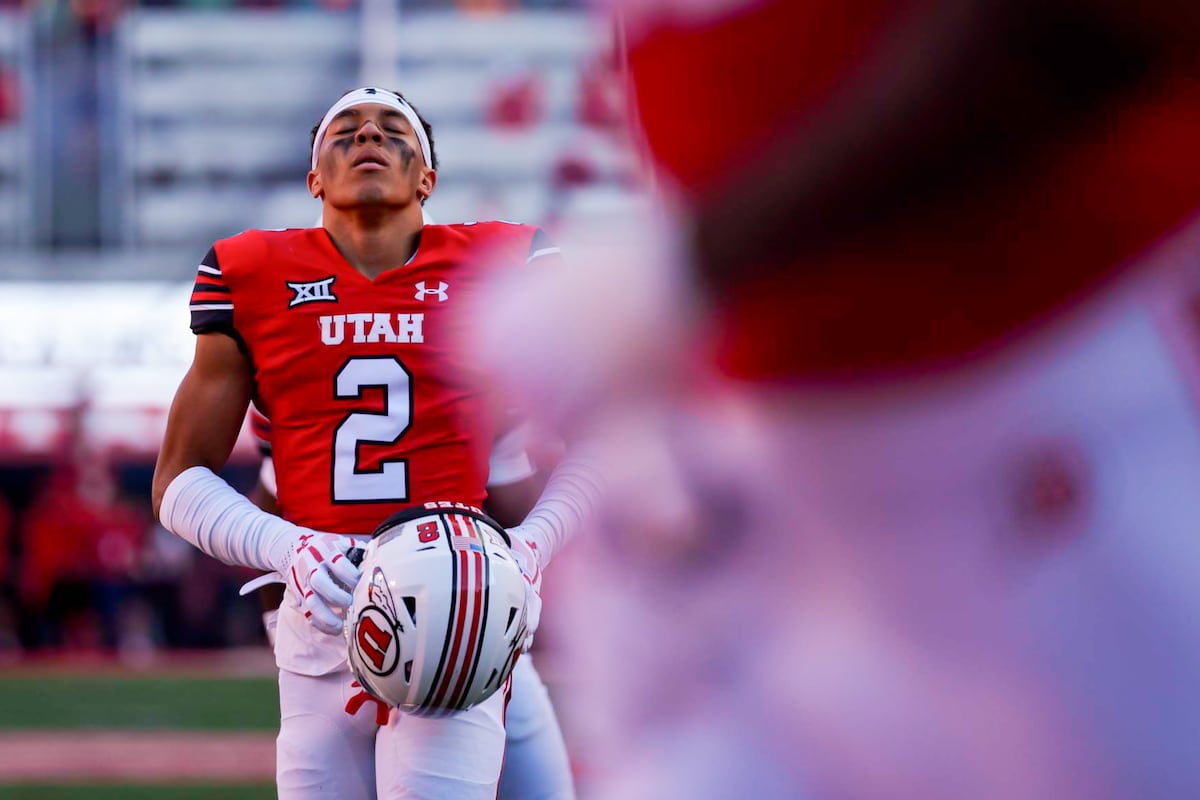
Frisco, Texas • Smith Snowden saw the blowback his former teammate Keanu Tanuvasa took for bolting from Salt Lake to Provo this offseason.
As fans struggled to comprehend how one of Utah’s best players could make the move to the school’s biggest rival, Snowden understood the hurt. But he also couldn’t help feeling compassion for the defensive tackle.
“If that is what he believed was the best for him, good for him,” Snowden said. “There is no bad blood. He was a brother. We sweat together. We bled together.”
Maybe there was a little bit more behind Snowden’s compassion, too, since he can relate to what Tanuvasa’s going through.
Snowden found himself in a similar firestorm this offseason, caught between the two fan bases.
BYU reportedly pursued Snowden, encouraging him to make the move from Utah to the Cougars.
Wednesday at Big 12 Media Days, Snowden confirmed he was recruited to leave Utah for BYU in the offseason.
“It wasn’t directly to me,” he said. “BYU wasn’t the only school [to reach out]. It is kind of what the name of the game is with the transfer portal.”
Snowden was never in the transfer portal. But the junior didn’t feel as though BYU tampered — or illegally reached out to him.
By NCAA rule, a team cannot contact a player directly unless they have entered their name into the transfer portal.
“I wouldn’t say it was any tampering type thing. It was more [through] agents,” he said.
Snowden has been uniquely indoctrinated into the dynamics of the Utah-BYU rivalry. His father, Will Snowden, played at BYU.
Ultimately, Snowden felt staying at Utah was a better fit for him.
“It has never been bad blood with them,” he said. “I just felt my best opportunity was to finish it off with the Ute boys and leave a mark at Utah.”
Since BYU and Utah entered the same conference, the rivalry between the two fan bases seemingly intensified.
“For sure,” Snowden said, agreeing with a smile.
BYU took two players from Utah in the offseason, including Tanuvasa and tight end Carsen Ryan.
But Snowden picked his side — even if he understands those who left.
“I think BYU-Utah went six years without playing each other. With having such a big rivalry, it is kind of weird not to play your rival,” he said. “Being able to have that in-state rival where you play them every year, it is exciting.”
It comes with a little extra drama, too.
NIL
Deion Sanders calls for rev-share cap, points out spending among College Football Playoff teams
With the revenue-sharing era well underway in college football, coaches are evaluating the state of the landscape. Schools are now able to directly share up to $20.5 million with athletes as part of the House v. NCAA settlement. Colorado coach Deion Sanders sees a way to further settle things, though. Speaking during a roundtable at […]
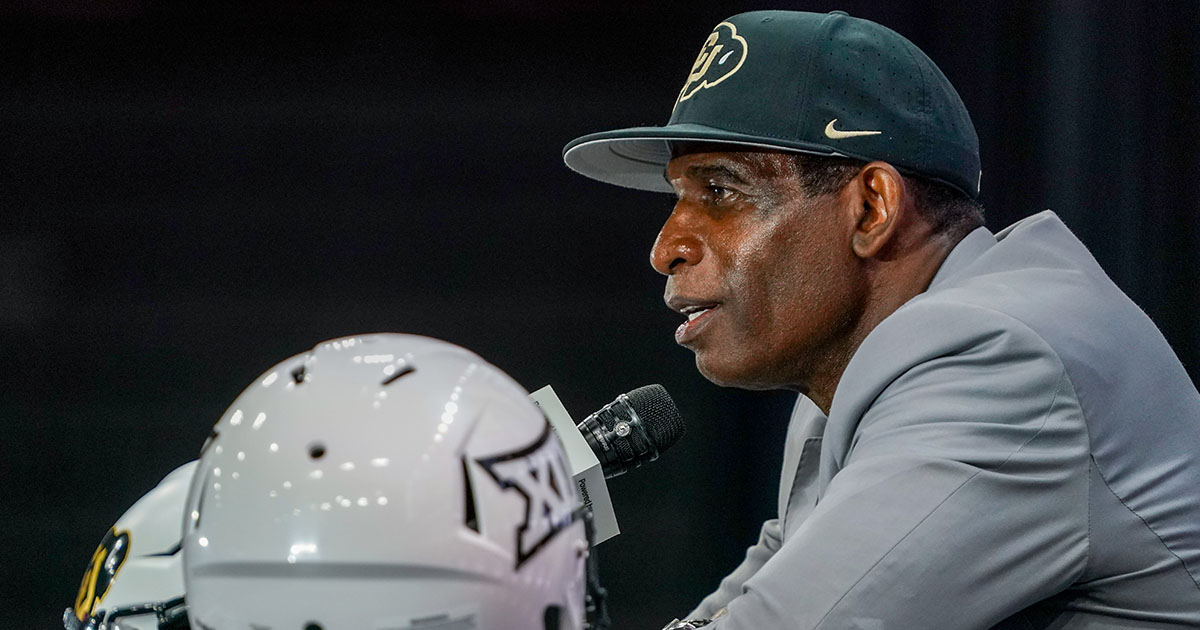
With the revenue-sharing era well underway in college football, coaches are evaluating the state of the landscape. Schools are now able to directly share up to $20.5 million with athletes as part of the House v. NCAA settlement.
Colorado coach Deion Sanders sees a way to further settle things, though. Speaking during a roundtable at Big 12 Media Days on Wednesday, Coach Prime called for a cap on rev-share dollars to shift things toward an NFL-like operation.
To illustrate his point, Sanders pointed out last year’s College Football Playoff and the conversations around roster costs. National champion Ohio State made headlines with its roster, worth upward of $20 million.
“I wish there was a cap,” Sanders said during the panel. “Like, the top-of-the-line player makes this and if you’re not that type of guy, you know you’re not going to make that. That’s what the NFL does. The problem is, you’ve got a guy that’s not that darn good, but he could go to another school and they give him another half a million dollars. You can’t compete with that. It don’t make sense.
“You talk about equality … all you have to do is look at the playoffs and see what those teams spent, and you understand darn near why they’re in the playoffs. It’s kind of hard to compete with somebody who’s giving $25, $30 million to a darn freshman class. It’s crazy.”
Ohio State’s 2024 roster was considered one of the more expensive rosters in college football last season as the Buckeyes took down Notre Dame to win the national championship. This year, though, roster costs continued to grow as teams braced for the House v. NCAA settlement.
On3’s Pete Nakos previously reported those figures soared toward $25 to $30 million on the higher end before the settlement’s approval. Once Judge Claudia Wilken issued her order, the NIL Go clearinghouse went into effect for deals worth at least $600. That led to frontloading of deals during recruitments prior to final approval.
But even with the rising costs of rosters and the ever-changing landscape, Deion Sanders said coaches still have to develop players. That said, he also reiterated what spending big money on a roster can do when the postseason comes around.
“We’re not complaining, because all these coaches up here can coach their butts off and given the right opportunity with the right players and to play here and there, you’ll be there,” Sanders said. “But what’s going on right now don’t make sense. We want to say stuff, but we’re trying to be professional.
“But you’re going to see the same teams darn near at the end, and with somebody who sneaks up in there, the team that pays the most is going to be there in the end.”
NIL
CFB revenue-sharing causing massive shift in NIL collectives, private equity money
The world of college sports has shifted more in the last few years than it has in almost its entire existence. With NIL, the transfer portal, and more popping up and changing in the blink of an eye, it can be hard to keep up with everything happening. With the most recent change, or adjustment, […]

The world of college sports has shifted more in the last few years than it has in almost its entire existence. With NIL, the transfer portal, and more popping up and changing in the blink of an eye, it can be hard to keep up with everything happening.
With the most recent change, or adjustment, the House settled with the NCAA and ruled that colleges and universities could directly pay their athletes, a virtual pay-to-play situation for college athletes.
You might be thinking, “How is that any different from the NIL collectives and funds that have been in place for the past couple of years?”
Honestly, that’s a really great question, one that even some college athletic departments are trying to grapple with as we speak. These universities built million-dollar funds through boosters, donations, NIL deals, and more.
Now, those funds are rapidly getting cut as schools no longer have to use a “workaround” to get their players the most amount of money possible. Yet another shift in college sports.
The NIL Go Clearinghouse was created within the House settlement as a virtual vetting system for various NIL deals that continue to pop up, even with programs directly paying athletes, and is run by the brand-new College Sports Commission.
Beyond NIL deals and getting a paycheck signed over to them by their teams, college athletes now have a big question surrounding them:
“Is it possible for private equity funds to pay collegiate athletes without crossing any of the House settlement lines?
For now, the answer is still unknown. Colleges are having to look between the lines to ensure that they aren’t walking themselves or their players into a sticky situation, mainly because this has never been a situation before.
Currently, the Texas Tech Red Raiders are the frontrunners in the learning curve, already writing a three-year $5.1 million check over to five-star offensive tackle Felix Ojo, and preparing to write an even bigger one to land LaDamion Guyton, the No. 1 prospect in the class of 2027.
To put it simply, most questions you’re possibly asking are being asked by everyone else, including the bigwigs in the NCAA and athletic departments. Most of the answers to those questions are still unknown, and may be for quite a while.
-

 Technology2 weeks ago
Technology2 weeks agoPet fitness and wellness trends for a healthier and happier dog
-

 College Sports2 weeks ago
College Sports2 weeks agoWAC to Rebrand to UAC, Add Five New Members in 2026
-
College Sports3 weeks ago
Women's Basketball Thanks Shannon LeBeauf for 14 Seasons
-

 Motorsports1 week ago
Motorsports1 week agoWhy Cosmetics are Making Up for Lost Time in Women’s Sports
-

 Professional Sports3 weeks ago
Professional Sports3 weeks agoAlex Pereira responds to rumors of UFC heavyweight title fight with threatening message
-

 College Sports3 weeks ago
College Sports3 weeks agoAlabama Basketball
-

 Professional Sports3 weeks ago
Professional Sports3 weeks agoFrancis Ngannou sends Dana White a message following Jon Jones' shock UFC retirement
-

 College Sports2 weeks ago
College Sports2 weeks agoA new era of Dickinson hockey begins behind the bench – The Dickinson Press
-

 Motorsports2 weeks ago
Motorsports2 weeks agoNASCAR This Week – Patriot Publishing LLC
-
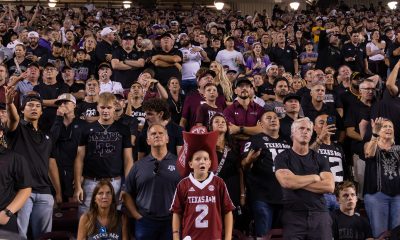
 Sports2 weeks ago
Sports2 weeks agoSEC Conference imposing a fine will create the opposite effect.




 Milwaukee Bucks WAIVE Dame Lillard to acquire Myles Turner REACTION
Milwaukee Bucks WAIVE Dame Lillard to acquire Myles Turner REACTION  | First Take
| First Take

























